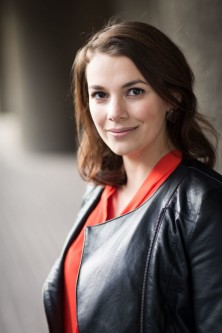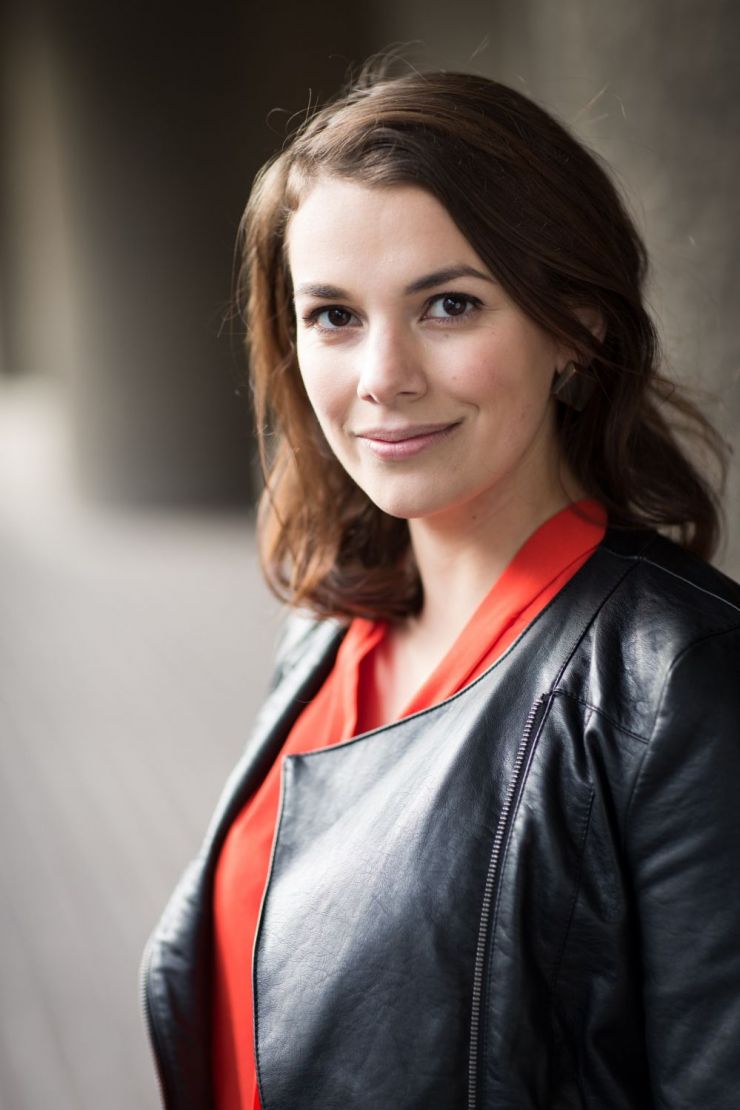 United Kingdom Messiaen: Rapaela Papadakis (soprano), Cordelia Williams (piano). Dora Stoutzker Hall, RWCMD, Cardiff. 18.11.2016. (GPu)
United Kingdom Messiaen: Rapaela Papadakis (soprano), Cordelia Williams (piano). Dora Stoutzker Hall, RWCMD, Cardiff. 18.11.2016. (GPu)

Concert 5
Messiaen – Trois Mélodies & Poèmes pour Mi
Messiaen’s parents were both distinctly literary (rather than primarily musical) people. His mother was a poet and his father both a teacher of English at a number of Lyceés and a translator of Shakespeare. Perhaps we should not, then, be surprised that the composer himself was an accomplished writer, or, indeed, that he wrote most of the words in whatever texts he set. Of the 12 songs heard in this recital which closed the RWCMD’s three days of Messiaen, Messiaen wrote the texts of eleven (the exception being a poem by his mother).
These songs are a relatively neglected area of Messiaen’s canon and I was grateful for the chance to hear a relatively rare British performance. Especially so, given that the performers, soprano Raphaela Papadakis and pianist Cordelia Williams, proved persuasive advocates for these two sets of songs. Papadakis, whose voice was strong and reliable across its range, is a communicative singer, with ultra-clear French diction, along with an unfussy but elegant stage presence. She was very ably supported by Williams, clearly recovered from her massive efforts of the previous evening in her performance of the Vingt regards sur l’enfant-Jésus, and able to relish the rather less challenging demands (in technical terms, at any rate) of the piano accompaniment here, a task in which she proved herself equally capable. Both singer and pianist were students at Cambridge University and given that they appear to be of much the same generation, one wonders whether their musical partnership goes back to their time at university; certainly they seemed very much at home in each other’s musical company. It would be pointless (and doubtless tedious) to comment on every song, but a few particular highlights deserve special mention, such as the beauty and intelligence of Raphaela Papadakis’s phrasing in ‘La Sorire’ and the joyously ebullient (yet serene) melisma of the closing alleluia in ‘Action des Grâces’ or, indeed, the resonantly bell-like work of Cordelia Williams in the opening of the same song.
I have taken Messiaen’s use of birdsong as a thread to follow through my review of these five ‘Messiaen’ concerts. To claim that birdsong is of major importance in these two song cycles, the Trois Mélodies and the Poèmes pour Mi, would involve some very special pleading. Yet it remains true that birdsong is important here too, albeit almost more implicitly than explicitly. It is present in the text (if less audibly so in the music) of ‘Pourquoi’, the first of the Trois Mélodies – the very first thing which the protagonist lists as no longer exerting the charms it once did is “les oiseaux de l’air” and a later item in the poem’s litany of loss refers to “les chansons du Printemps”. In the Poèmes pour Mi, ‘Ta Voix’ speaks of an open window which, in admitting both fresh air and birdsong, simultaneously allows those inside to access both these ‘natural’ phenomena and eternity too (all through a ‘bird of spring’ which awakes):
Fenêtre pleine d’apres-midi,
Qui s’ouvre sur l’apres-midi,
Et sur ta voix fraiche
(Oiseau de printemps qui s’eveille)
Si elle s’ouvrait sur l’eternité
…
Tu est la servant du Fils,
Et le Père t’aimerait pour cela.
…
Tu compléterais le mombre des anges imcorporels.
A la gloire de la Trinité sainte
Un toujours de Bonheur élèvarait ta voix fraiche
(Oiseau de printemps qui s’éveille):
Tu chanterais.
For Messiaen the sacred is always present in the superficially secular. The two are inseparable, nowhere more so than in marriage, which is the subject of ‘L’Épouse’, the fifth of the nine songs which make up Poèmes pour Mi, and the symmetrical centrality articulates its central role in the cycle’s meaning, as it affirms the co-inherence of human and divine love.
Messiaen is, of course, a fundamentally Catholic composer. But he is by no means only or exclusively a composer for Catholics (or for Christians more broadly). He is a composer whose work is capable of speaking to any listener whose understanding (experience?) of the world is not merely a matter of materialism. It is far from being an accident that as Messiaen’s career developed he proved himself willing to learn from, and to make use of, musical and other resources from many other traditions of religious thought and culture. His music, to borrow some words from Paul Griffiths (in his book Olivier Messiaen and the Music of Time, 1985) exists to articulate (or endeavour to articulate) “the presence of the eternal within the temporal, the unmeasurable within the measured, the mysterious within the known”.
Three days of Messiaen’s music proved, for a writer who adheres to no specific religion, a spiritually awakening experience, and I am profoundly grateful to all who were involved in organising and performing in this event.
Glyn Pursglove
